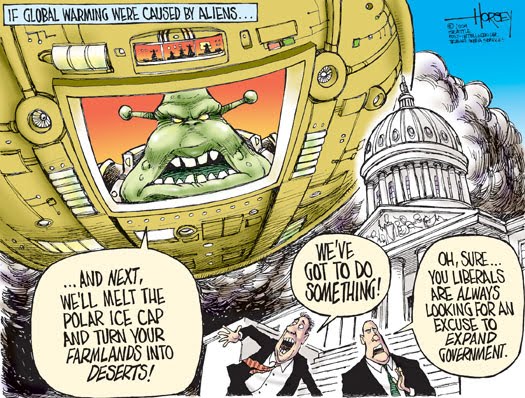2012 SkS Weekly Digest #39
Posted on 1 October 2012 by John Hartz
SkS Highlights
Inuit Perspectives on Recent Climate Change could very well be the most important article to be posted on SkS during 2012. How climate change is impacting the Inuits of Nain, Nunatsiavut is eloquently captured by Caitlyn Baikie, an Inuit geography student at Memorial University of Newfoundland and a close personal friend of Robert Way, a key member of the SkS author team. Thank you Caitlyn for sharing this story with us.
Toon of the Week

What say you?
What topical issues would you like to see SkS pay more attention to?
Quote of the Week
Sheikh Hasina, prime minister of Bangladesh, said: "A 1C rise in temperature [temperatures have already risen by 0.7C globally since the end of the 19th century] is associated with 10% productivity loss in farming. For us, it means losing about 4m tonnes of food grain, amounting to about $2.5bn. That is about 2% of our GDP. Adding up the damages to property and other losses, we are faced with a total loss of about 3-4% of GDP. Without these losses, we could have easily secured much higher growth."
Source: Climate change is already damaging global economy, report finds by Fiona Harvey, The Guardian, Sep 25, 2012
The Week in Review
- 2012 SkS Weekly News Round-Up #3 by John Hartz
- Loss of Arctic Sea Ice ... and of a 'Giant Parasol' by greenman3610
- Sea Level Isn't Level: Ocean Siphoning, Levered Continents and the Holocene Sea Level Highstand by Rob Painting
- Rally for Canadian Science in Victoria, BC by Andy S
- Inuit Perspectives on Recent Climate Change by Robert Way
- Lessons from Past Climate Predictions: Arctic Sea Ice Extent 2012 Update by Dana
- New research from last week 38/2012 by Ari Jokimäki
Coming Soon
- Fox News Gets Climate Science Wrong 93% of the Time (John Cook)
- New research from last week 39/2012 (Ari Jokimäki)
- Nate Silver's Climate Chapter - Some Good, Some Major Problems (Dana)
- Modelling the permafrost carbon feedback (Andy S)
- The Economic Damage of Climate Denial (Dana)
- Most coral reefs are at risk unless climate change is drastically limited (John Hartz)
- 2012 SkS News Roundup #4 (John Hartz)
- Fred Singer - not an American Thinker (John Abraham and Dana)
SkS in the News
This week Skeptical Science was referenced by Yahoo News, Live Science, The Huffington Post, and Clean Technica.
Andy's Rally for Canadian Science in Victoria, BC was also reposted by Environmental Guru.
SkS Spotlights
Hot Topic covers climate change and its impacts on New Zealand. It is the companion web site to Hot Topic: Global Warming And The Future Of New Zealand, a recent book by Gareth Renowden, published by AUT Media in August 2007.
Gareth and his co-blogger Bryan Walker blog on climate news as it happens: interesting new science, political developments in NZ and on the international scene, and the antics of climate cranks — with special reference to NZ’s own “Climate Science Coalition”.































 Arguments
Arguments























 0
0  0
0






Comments